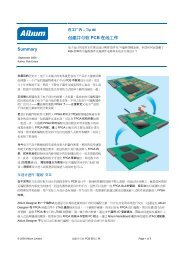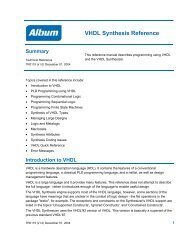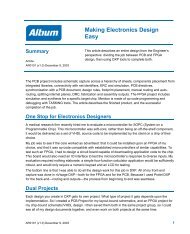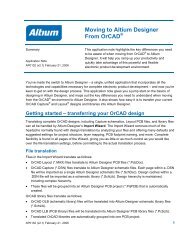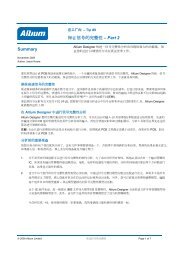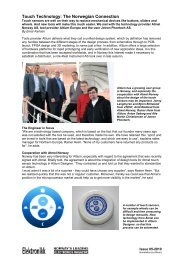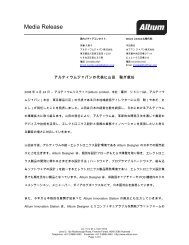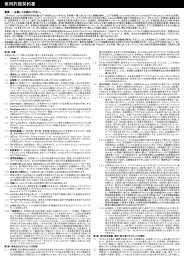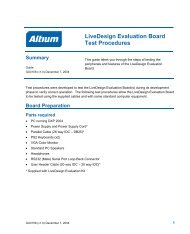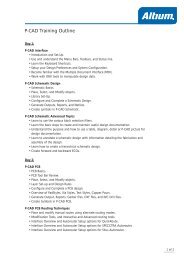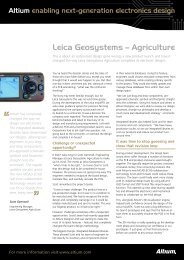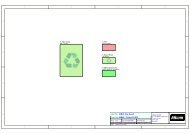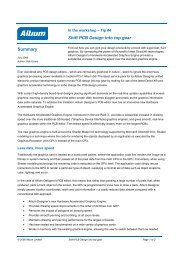TASKING C166 ELF-DWARF APPLICATION BINARY INTERFACE
TASKING C166 ELF-DWARF APPLICATION BINARY INTERFACE
TASKING C166 ELF-DWARF APPLICATION BINARY INTERFACE
You also want an ePaper? Increase the reach of your titles
YUMPU automatically turns print PDFs into web optimized ePapers that Google loves.
<strong>TASKING</strong> <strong>C166</strong><br />
<strong>ELF</strong>-<strong>DWARF</strong> <strong>APPLICATION</strong> <strong>BINARY</strong> <strong>INTERFACE</strong><br />
2.5.1.1 Basic Facts<br />
• Each stack word is 16 bits in size.<br />
• Conceptually, the return address consists basically of CSP:IP, but for "near"<br />
functions only IP will be pushed on the stack, meaning that the callee's CSP value<br />
is the same as the caller's then.<br />
• Whether the return address is pushed on the system stack or the user stack<br />
depends on several factors. See the tables below.<br />
• CSP does not change for the duration of one function.<br />
2.5.1.2 Pending Issues<br />
• Functions where variable length arrays (VLA) are used, switch to using R8 as the<br />
frame pointer in order to access automatic variables, while R15 still acts as SP.<br />
However, R15 is changed based on run-time data, when resizing VLAs, which<br />
cannot be determined at compile time. Therefore in VLA situations R8 should be<br />
used in the CFA calculations.<br />
• Infrequently the C compiler needs to save the PSW register to the system stack for<br />
a very short period of time, causing the SP register to change in value. These socalled<br />
stack deltas also need to be reflected in the call frame information.<br />
2.5.1.3 Known Limitations<br />
• When single-stepping individual instructions into a function call in a user-stack<br />
model application, the return address is pushed onto the user-stack using multiple<br />
instructions. For these instructions no call frame information is issued, causing call<br />
frame information to be insufficient for stack walking or saved register retrieval<br />
when halting anywhere in such a push sequence.<br />
2.5.1.4 Near Functions, Return Address on System-Stack<br />
The below applies to functions explicitly or implicitly qualified __near<br />
__nousm.<br />
Saved value Stack<br />
Return address SP stack<br />
Local automatic variables R15 stack<br />
CPU registers R15 stack<br />
System Stack Layout<br />
+0 IP<br />
2.5.1.5 Huge Functions, Return Address on System-Stack<br />
The below applies to functions explicitly or implicitly qualified __huge<br />
__nousm.<br />
Saved value Stack<br />
119-EDABI 1.4 Released page 13 of 19 2008-09-04



